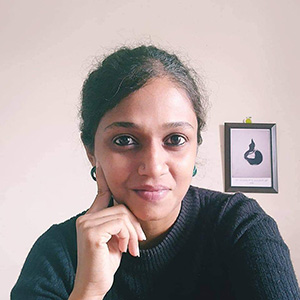
Four Boundless Attitudes for Well-being Led by Pallavi Deshmukh
A 6-day contemplative and experiential workshop on the four boundless attitudes with wisdom in the driver’s seat, rooted in the Buddhist tradition.
What are the four boundless attitudes?
In Buddhism, the four boundless attitudes/qualities or four divine abodes or four sublime states, also popularly known as the four brahmaviharas are emotional states and practices cultivated through contemplation, meditation and mindfulness.
The four boundless attitudes/ four immeasurables are: Loving-kindness (sanskrit: maitrī); compassion (sanskrit: karuṇā); appreciative joy (sanskrit: muditā); equanimity (sanskrit: upekṣā)
What is this workshop all about?
The topic of the workshop, rooted in Mahayana Buddhism, will focus on the practice of aspirational bodhicitta – the intention to cultivate an awakened/open mind-heart for the benefit of all sentient beings, including oneself – with the wisdom (the buddhist view) in the driver’s seat!
The primary intention is to create a space where participants are able to familiarise, explore and further cultivate these innate human qualities based on their own capacity and current life circumstances.
This is a contemplative and exploratory workshop structured around the three wisdoms approach in Buddhism – listening/studying, contemplating and meditating using the expressive arts as an experiential medium to personalise and bring these immeasurables alive in daily life.
***Please note: No prior experience or artistic training (movement or arts) is required to participate in the expressive art activities.
Throughout the 6 days, select videos of teachings by great masters relevant to the topic will be shown. There will also be group discussions to encourage sharing, listening and connection with other participants.
The workshop is on a dana/donation basis and all art materials will be provided by Deer Park Institute.
Who is this workshop for?
Anyone curious to learn and experience the four immeasurables for the first time
Those already familiar with the topic and seeking to refresh or deepen their understanding
Why should you attend this workshop?
We experience suffering in different forms navigating challenging circumstances and life situations that usually give birth to myriad escape mechanisms including disconnecting from ourselves also affecting our relations with the world. How do we train our minds and open our hearts to deal with the unfixable samsara and its so-called chaos?
“A great deal of chaos in the world occurs because people don’t appreciate themselves. Having never developed sympathy or gentleness towards themselves, they cannot experience harmony or peace within themselves, and therefore, what they project to others is also inharmonious and confused. Instead of appreciating our lives, we often take our existence for granted or we find it depressing and burdensome. As human beings, we have a working basis within ourselves that allows us to uplift our state of existence and cheer up fully. That working basis is always available to us – mind and body.” ~ Chogyam Trungpa Rinpoche
….So, how do we really begin to uplift ourselves?
“The bodhicitta practices are ways for us to sow the seeds of well-being. Particularly powerful are the aspiration practices of the four limitless qualities – loving-kindness, compassion, joy and equanimity.” ~ Ani Pema Chodron
…and we do so with the view
As Dzongsar Khyentse Rinpoche puts it, consider that wisdom, compassion, and morality are taking a car ride together. Ideally, he said, wisdom (bird’s eye view as he calls it) should be in the driver’s seat, with compassion beside it in the passenger seat and morality in the back seat, or even in the car trunk, right at the back.
So, we come together to recognise and cultivate our jewel-like innate qualities guided by the view of wisdom towards becoming more appreciative, joyful and courageous beings genuinely connected with ourselves and the world.
What do you need for this workshop
An open mind and your presence 🙂
An immersive workshop, the content builds on progressively through contemplation, meditation and expressive arts, hence attendance across all sessions through 6 days is mandatory.
Comfortable clothing for daily movement activities
Schedule
09:00 am – 12:00 pm – Session 1 (with tea break)
12:00 pm – 02:30 pm – Lunch and rest break
02:30 pm – 06:00 pm – Session 2 (with tea break)
07:15 pm – 08:30 pm – Session 3 – Video with Discussion or Q & A
About the facilitator – Pallavi Deshmukh
Pallavi is a dharma student in the Tibetan Buddhist tradition and enjoys bringing its practices to life through the expressive arts. She has been studying Buddhist philosophy through different programs over the years and is also a trained meditation instructor. Inspired by her teachers, Pallavi holds a strong conviction in integrating study and practice – both formally and in day-to-day life and aspires to follow this as a foundational principle of her path. She is a certified dance/movement therapy practitioner, visual arts facilitator and is also trained in Buddhist counselling.
